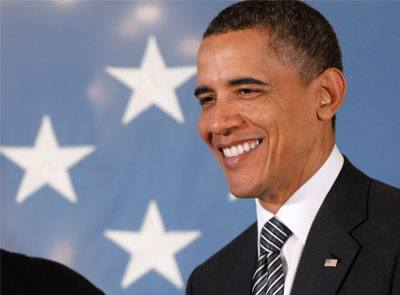
WASHINGTON — He may have been the first African-American president of the Harvard Law Review and taught constitutional law at the University of Chicago.
REPORTS BY REUTERS
He may have written a book extolling constitutional values in a democracy. And he may have run for president on a civil liberties banner, pledging to reverse the legacy of George W Bush.
But as US president for the last four and half years, Barack Obama has faced accusation after accusation of impinging on civil liberties, disappointing his liberal democratic base and providing fodder for rival republicans as he deals with the realities of office.
News in the past week of the federal seizure of phone records from the Associated Press (AP) news agency and the Internal Revenue Service’s targeting of conservative Tea Party groups, has intensified criticism already simmering over the Guantanamo Bay prison camp and aerial drone strikes abroad.
Asked at a news conference why the administration had not done more for civil liberties, Attorney General Eric Holder said: “I’m proud of what we have done” and emphasised the administration’s shift from Bush’s era of harsh interrogation practices of terrorism suspects that had drawn international criticism.
When he took office in 2009, Obama promised to close the Guantanamo camp for foreign terrorism suspects, but it remains open with 166 detainees, many on hunger strikes in protest of their indefinite detentions.
Obama said last month he would revisit that pledge and blamed congress for blocking his plan to close the camp, partly through restrictions on transfers of detainees.
- Chamisa under fire over US$120K donation
- Mavhunga puts DeMbare into Chibuku quarterfinals
- Pension funds bet on Cabora Bassa oilfields
- Councils defy govt fire tender directive
Keep Reading
The administration has defended its aerial drone strikes abroad, which have included targeting a US born terrorism suspect, as essential to the fight against al Qaeda and other militants in places such as Pakistan and Yemen.
Holder defended the seizure of journalists’ records, saying it was part of an investigation into a leak that he called “very, very serious.” A law enforcement official said the probe is related to information in a May 2012 AP story on a foiled Yemen-based al Qaeda plot.
The phone records seizure was the latest in a series of crackdowns on leaks by the Obama administration.
Obama has disappointed some because of his background, and because he followed the Bush presidency that had responded to the attacks of September 11 2001, with what liberal critics saw as a trampling of civil liberties.
“There were reasons to think he would be different,” said New York University law professor Barry Friedman, who teaches constitutional law and has written about public attitudes on the law. “He seemed to be inculcated with constitutional values, because of his background and because of what he said during the campaign.”
Friedman and other law professors acknowledge the constitution is a text open to myriad interpretations and that, in situations such as the use of drones, a constant balancing of national security and individual liberties occurs.
‘These are the realities of being president’
Harvard University law professor Laurence Tribe, a professor, mentor and longtime supporter of Obama, said his famous former student was facing the realities of being president.
Tribe wrote in an email that on campus, “Barack Obama could live in a world unclouded by bureaucratic and political obstacles. As President, however, Barack Obama needs to impose his basic beliefs and priorities on the vast bureaucracy. … His failings, in my view, have much more to do with whatever he has permitted to take place under the supposed oversight of [individual Cabinet secretaries] than they have to do with his own constitutional understanding and commitments.”
When Obama won his place as the first African-American in the White House, many Americans applauded another advance in the country’s long civil rights movement. But while Obama has long presented himself as a progressive Democrat, he has not been known as a fiery civil libertarian.

Scandals, political abuse part of IRS over the years
NEW YORK — A crisis engulfing the US Internal Revenue Service (IRS) over its scrutiny of conservative groups seeking tax-exempt status adds to a long history of scandal and abuse — both real and alleged — at the tax agency.
Here are some high-profile cases over the past 80 years, based on historical articles, books and news reports.
1930s — President Franklin Roosevelt used the IRS against political enemies, launching investigations into the finances of publisher William Randolph Hearst, Louisiana Governor Huey Long and controversial radio priest Charles Coughlin.
1940s and 1950s — Corruption and bribery became widespread at the IRS, resulting in hundreds of staffers being dismissed or indicted. The agency went through a major reorganisation during the administration of President Harry Truman. Employees were put under the civil service to prevent political influence.
1960s — During the administration of President John Kennedy, the IRS created an “Ideological Organisations Audit Project” that investigated conservative groups and challenged their tax-exempt status.
The IRS started the project after Kennedy complained about right-wing groups getting tax-exempt status during a news conference. Targets included the American Enterprise Institute and Christian Anti-Communist Crusade.
1990s — During hearings by Senator William Roth’s Finance Committee, the IRS was accused of “Gestapo-like” conduct and myriad taxpayer abuses.












